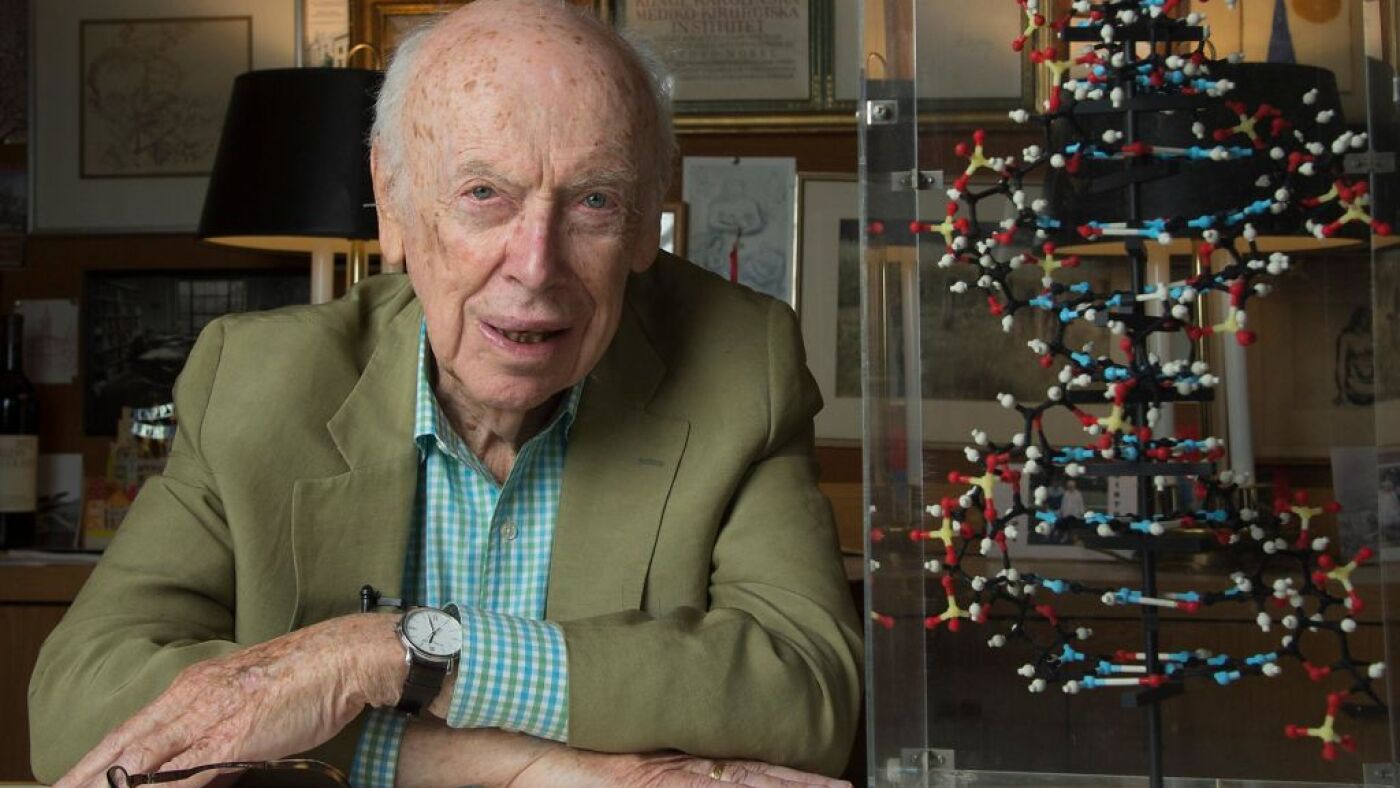James Watson, who co-discovered the structure of DNA, has died at age 97
toggle caption J. Conrad Williams, Jr./Newsday/Getty Images
For James Watson, DNA was everything — not just his life's work, but the secret of life itself.
Over his long and storied career, Watson arguably did more than any other scientist to transform a once-obscure biological molecule, DNA, into the icon of science and society that it is today.
But when Watson died this week at the age of 97, his renown as the co-discoverer of the structure of DNA was tarnished by the fact that he had become a persona non grata in the two research fields that he pioneered: molecular biology and genomics.
Watson's penchant for making prejudiced and scientifically unfounded remarks about Black people, women, and others eventually forced even the institution that he had long directed, Cold Spring Harbor Laboratory, to cut all ties with him in 2019.
Sponsor Message
This fall from grace was remarkable given the heights he had achieved. In 1953, when he was not yet 25 years old, Watson worked with English researcher Francis Crick to piece together clues from various experiments — including work done by X-ray crystallographer Rosalind Franklin — in order to create the first accurate model of DNA's chemical structure.
"This structure has novel features which are of considerable biological interest," Watson and Crick wrote in the published report describing their model, in what has to be science's most famous understatement.
Knowing the structure of DNA made it suddenly obvious how a single molecule could both encode life's complexity and also reproduce itself, showing that this was the long-sought key to understanding the physical mechanisms of heredity.
"DNA was no mere discovery," says Howard Markel, a historian who wrote a book on how Watson, Crick, Franklin and others uncovered this molecule's structure. "It's a light switch moment."
In his opinion, the discovery is the equal of Charles Darwin's insights into how life evolves through natural selection.
Watson apparently shared that view. In an interview, when Markel asked him how he had felt as a young man after becoming certain that this structural model of DNA was correct, Watson replied, "I thought I was up there with Darwin."
Sponsor Message
"That's a striking comment," notes Markel. "I've been a citizen of academic scientific institutions and medical institutions for half-a-century, and everybody brags about their work. But in this case, the speaker was actually speaking the truth."
Quickly bored
It's telling that Watson once wrote a book entitled Avoid Boring People.
Continue Reading on NPR
This preview shows approximately 15% of the article. Read the full story on the publisher's website to support quality journalism.
